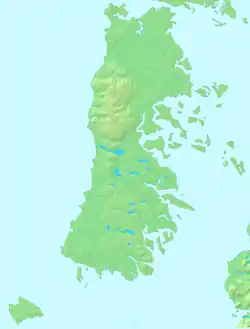Churches of Chiloé
The Churches of Chiloé in Chile's Chiloé Archipelago are a unique architectural phenomenon in the Americas, and one of the most prominent styles of Chilota architecture. Unlike classical Spanish colonial architecture, the churches of Chiloé are made entirely in native timber with extensive use of wood shingles. The churches were built from materials to resist the Chiloé Archipelago's humid and rainy oceanic climate.
| UNESCO World Heritage Site | |
|---|---|
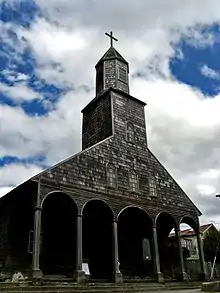 Saint Mary Church (Iglesia Santa María) in Achao | |
| Location | Chiloé Archipelago, Chile |
| Includes |
|
| Criteria | Cultural: ii, iii |
| Reference | 971 |
| Inscription | 2000 (24th session) |
| Coordinates | 42°30′0″S 73°46′0″W |
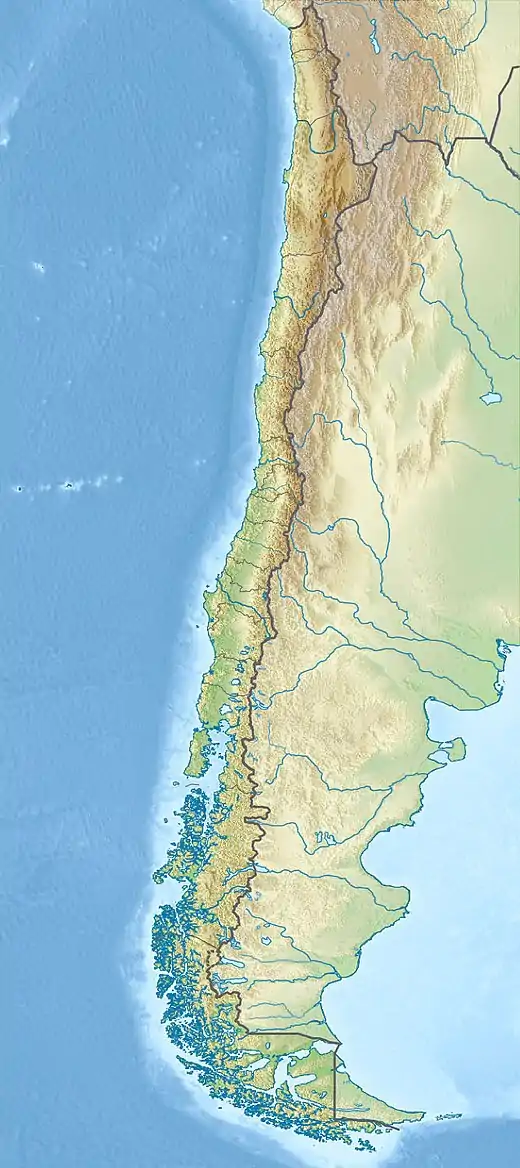 Location of Churches of Chiloé in Chile | |
Built in the 18th and 19th centuries when Chiloé Archipelago was still a part of the Spanish Crown possessions, the churches represent the fusion of Spanish Jesuit culture and local native population's skill and traditions; an excellent example of mestizo culture.
The Churches of Chiloé were designated UNESCO World Heritage Sites since 2000. The University of Chile, Fundación Cultural Iglesias de Chiloé and other institutions have led efforts to preserve these historic structures and to publicize them for their unique qualities.[1]
Location
The sixteen churches registered as part of the World Heritage Site are concentrated in the central eastern zone of the archipelago.
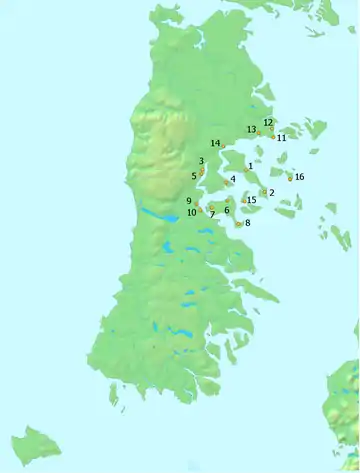
| Code | Name | Commune |
|---|---|---|
| 971-001 | Church of Achao | Quinchao |
| 971-002 | Church of Quinchao | Quinchao |
| 971-003 | Church of San Francisco | Castro |
| 971-004 | Church of Rilán | Castro |
| 971-005 | Church of Nercón | Castro |
| 971-006 | Church of Aldachildo | Puqueldón |
| 971-007 | Church of Ichuac | Puqueldón |
| 971-008 | Church of Detif | Puqueldón |
| 971-009 | Church of Vilupulli | Chonchi |
| 971-010 | Church of Chonchi | Chonchi |
| 971-011 | Church of Tenaún | Dalcahue |
| 971-012 | Church of Colo | Quemchi |
| 971-013 | San Juan Bautista | Dalcahue |
| 971-014 | Our Lady of Sorrows | Dalcahue |
| 971-015 | Church of Chelín | Castro |
| 971-016 | Church of Caguach | Quinchao |
Gallery
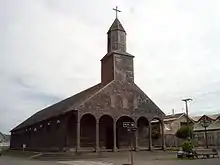
 Interior of the Church of Achao
Interior of the Church of Achao.JPG.webp) Nave of the Saint Mary Church in Achao
Nave of the Saint Mary Church in Achao
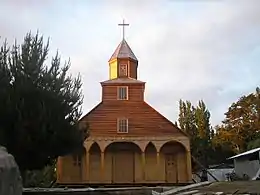

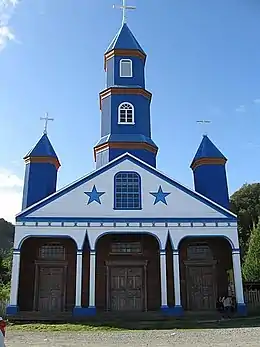
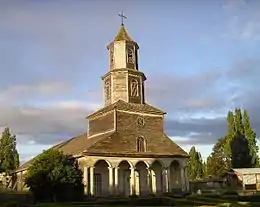
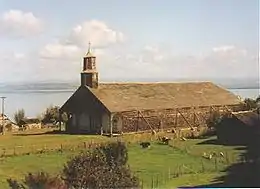 Church of Quinchao (Iglesia de Quinchao)
Church of Quinchao (Iglesia de Quinchao)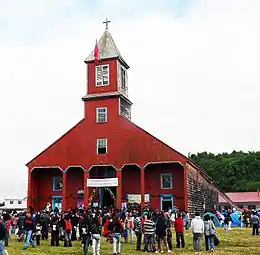 Church of Caguach (Iglesia de Caguach)
Church of Caguach (Iglesia de Caguach)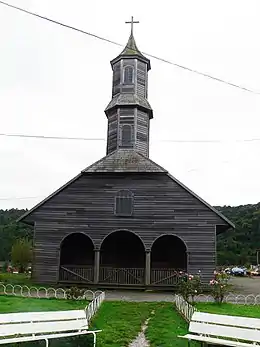 Church of San Juan (Iglesia de San Juan)
Church of San Juan (Iglesia de San Juan)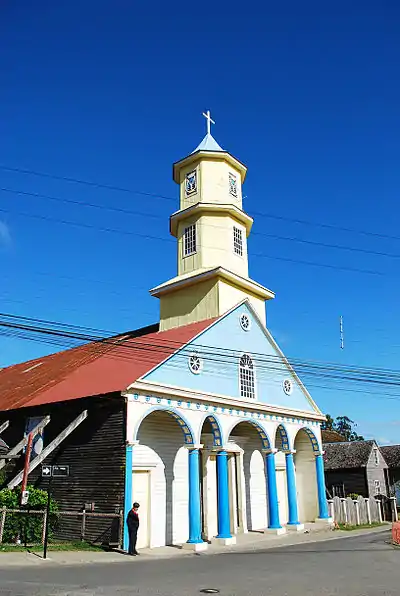 Chonchi Church
Chonchi Church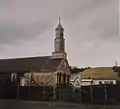 Iglesia Jesús Nazareno, Aldachildo, Lemuy Island
Iglesia Jesús Nazareno, Aldachildo, Lemuy Island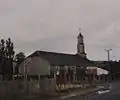 Iglesia Jesús Nazareno, Aldachildo, Lemuy Island
Iglesia Jesús Nazareno, Aldachildo, Lemuy Island
See also
Notes
- Berg Costa, Lorenzo (2005), Restauración Iglesias de Chiloé Conservando lo Infinito, Editorial Universitaria, p. 3, ISBN 956-11-1778-9
External links
| Wikimedia Commons has media related to Churches of Chiloé. |
